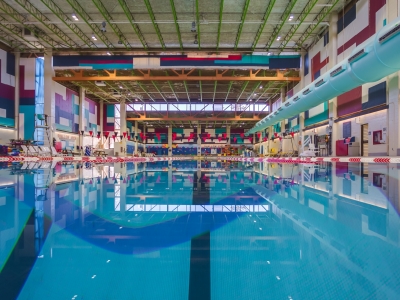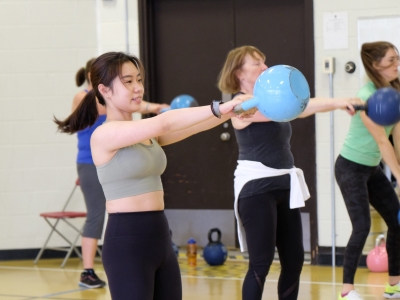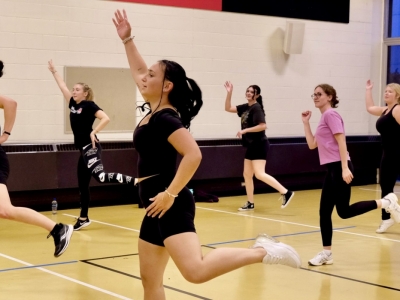All over Europe and North America, vegetarian and vegan diets are on the rise. In Canada, this trend is most pronounced in Ontario, British Columbia, and Alberta–with Ottawa, Ontario making “Canada’s Best Vegetarian-Friendly Cities” lists. Even some nonvegetarians are deliberately eating less meat; for example, participation in the Meatless Monday Project endorsed by the Center for a Livable Future has increased since its inception in 20034. The project is now active in 25 countries.

People are choosing to eat less or no meat for subsistence, ethical, health, or environmental reasons. If you choose to eat less or no meat, you should be aware of and plan to meet your nutritional requirements (as you should if consuming the Standard American Diet or any other diet. It’s your health at stake). Vegetarians, including lacto-ovo vegetarians, lacto vegetarians, ovo vegetarians, and vegans, have unique nutritional challenges; if you are vegetarian, plan to eat or supplement enough vitamin B(12), vitamin D, ω-3 fatty acids, calcium, iron, and zinc. Eat a variety of plant protein sources–beans, nuts, legumes, and seeds–throughout the day to create complete proteins.
With these stipulations in mind, vegetarians of all ages – including children, teenagers, and women who are pregnant or breastfeeding – can eat healthfully. However, vegetarian athletes face different nutritional challenges than non-athletes. While all vegetarians need to combine foods to create complete proteins – those with all nine amino acids – athletes who have higher protein targets might find it difficult to consume enough protein without overeating. Combat this problem by eating protein-rich vegetarian foods such as black beans, cashews, and chia seeds; complete plant proteins such as quinoa, hemp seeds, buckwheat, and soy beans; or complete animal proteins such as eggs and yogourt. To learn more about vegetarian sources of protein, see Matt Frazier’s article, “Vegetarian Protein Foods” on the No Meat Athlete blog. Consider buying plant-based protein powder or bars. Some delicious ones with complete proteins are currently on the market, including those by Vegessential and Vega – and they are often replete with other nutrients, too!
Vegetarian athletes should also pay close attention to iron – an essential part of hemoglobin, involved in the transportation of oxygen throughout our bodies. There are two kinds of dietary iron: heme iron, found in animals, and nonheme iron, found in plants. Nonheme iron is less bioavailable than heme iron, so the recommended daily intake of iron is 1.8 times as high for vegetarians as nonvegetarians.The recommended daily intake of iron is even higher for athletes than nonathletes: Intensive workouts can deplete your iron stores, leading to iron deficiency or anaemia. Include iron-rich vegetarian foods such as lentils, pumpkin seeds, quinoa, oats, dried apricots, and blackstrap molasses in your diet; eat these with vitamin C to increase absorption. Check out Jack Norris’s article in Vegan Health, “Iron,” for more information. Remember to have your iron checked by a doctor regularly – then eat and supplement accordingly!
Vegetarian athletes and nonathletes alike should plan to consume the following vitamins: K2, D3, and B12, which can be found in enriched foods and supplement form. And, like anybody who eats, vegetarians should focus on having whole foods instead of processed ‘foods’; although some processed vegetarian and vegan foods are enriched with vitamins and minerals, many nutritionists, dieticians, and medical doctors say you should stick to real food9. After all, Frosted Flakes are Frosted Flakes – whether they are vegan or not. To avoid processed foods or buying undesirable cafeteria lunches, plan your meals and snacks ahead of time. With practice, you will become one of your favourite chefs!
In conclusion, many athletes can eat less or no meat safely, although it takes forethought and dedication to do. Plan to eat or supplement vitamin B(12), vitamin D, ω-3 fatty acids, calcium, iron, and zinc; eat a wide variety of plant-based protein; and always listen to your body (and your doctor). Without careful planning and monitoring, your overall health and athletic performance could suffer – but as an athlete, we know you are used to forethought and hard work.
If you have experience training on a plant-based diet, we would love to hear from you. Join the discussion!
Written by Manon van Mill
Please note that the author is not a registered nutritionist and the advise is her opinion only.



